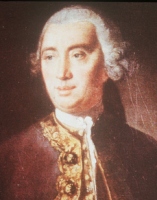
David Hume
Recent News
- The third paper is due March 19. The final examination will be due, on-line via Canvas, on March 19 at 5:30 P.M.
This is the home page of G. J. Mattey’s Philosophy 174, Hume, for Winter Quarter, 2020.
The best lack all conviction, while the worst
Are full of passionate intensity
— William Butler Yeats, The Second Coming
(1919)
The Course
Philosophy 174 is devoted to the study of the 18th century Scottish philosopher David Hume. Although the focus will be on his monumental Treatise of Human Nature, some variations in his An Enquiry concerning Human Understanding will be discussed.
General Catalog Course Description
David Hume’s Treatise of Human Nature and related writings. Topics include empiricism, space, causality, belief, skepticism, the passions, and morality.
The Topic
The Treatise consists of three Books, the third having been published after the joint publication of the first two. Book 1 is entitled “Of the Understanding.” It consists of four parts, the first concerning the basic psychological mechanisms of the understanding, the second, our idea of space, the third knowledge and probability, and the fourth, skepticism. The most celebrated of the Books of the Treatise, Book 1 contains the famous attack on the rationality of our beliefs about causal connections. Book 2 gives an account of the passions of the mind, most importantly the pairs pride/humility and love/hatred. This account is then mobilized in Book 3, “Of Morals,” to explain the nature of moral judgments. Like our causal judgments, moral judgments are claimed not to be based upon reason. Instead, they express feelings of approval or disapproval. The Enquiry for the most part re-formulates Book 1 of the Treatise, but it contains two additional sections: one concerning the rationality of belief in miracles based on testimonial evidence, and the other the arguments for a divine providence and a life after death.
